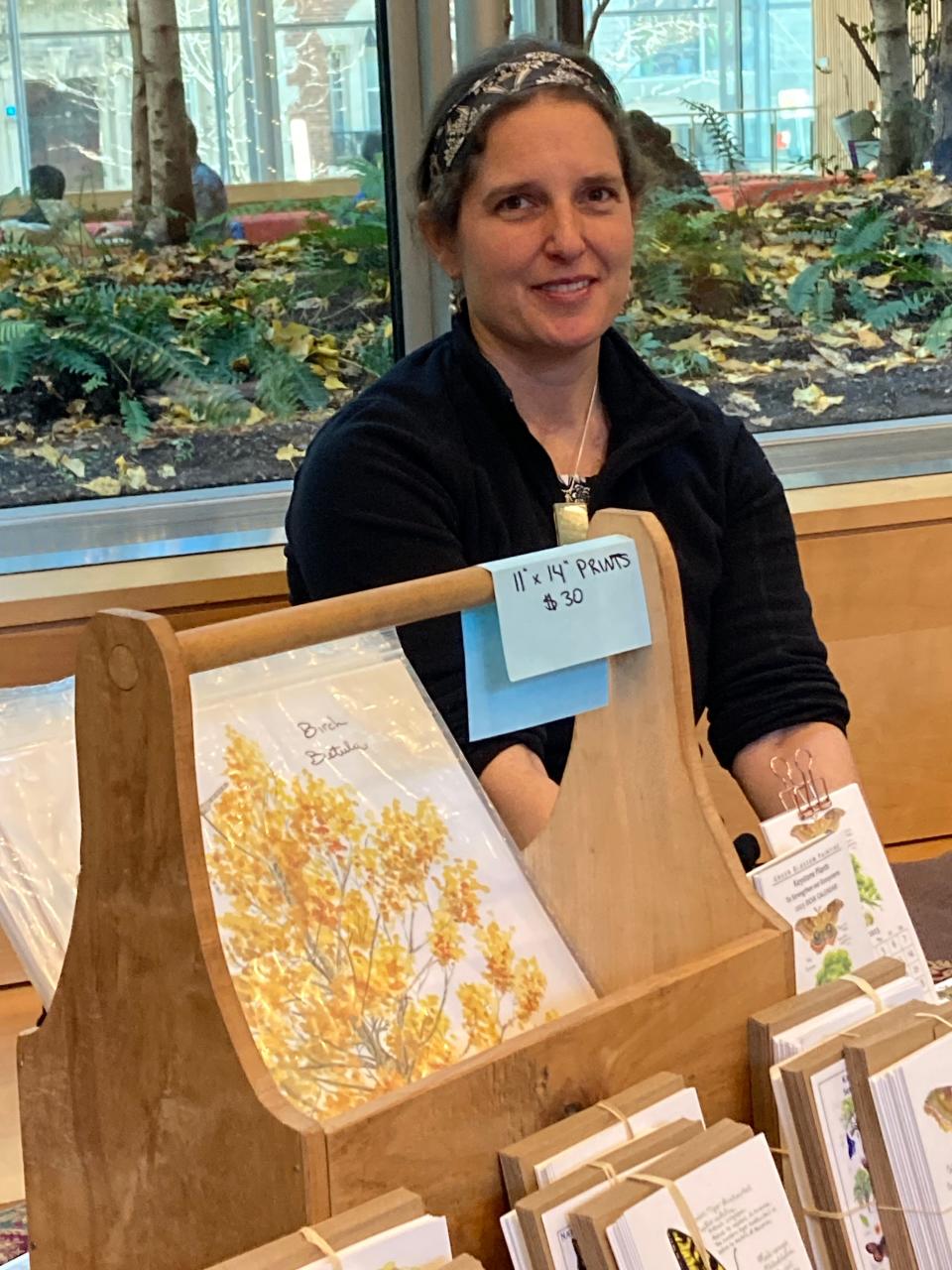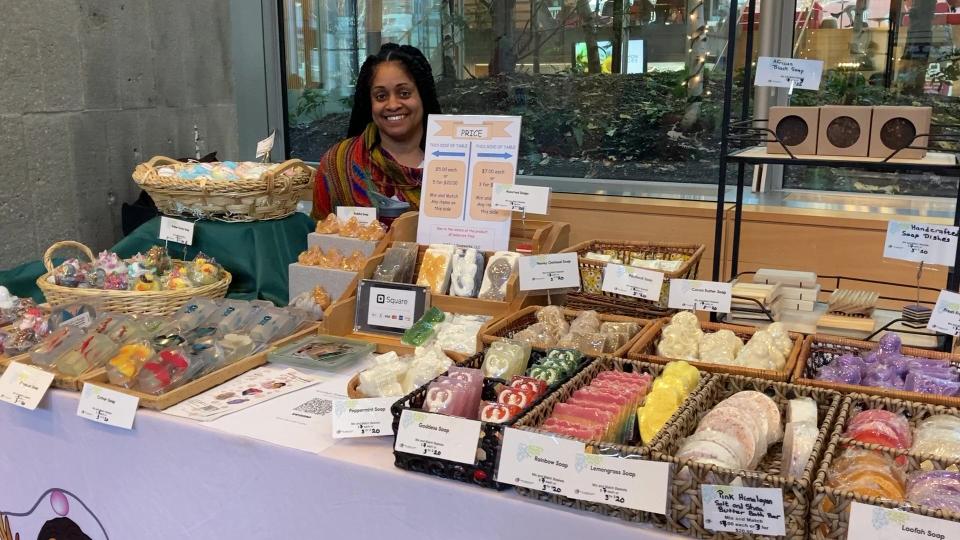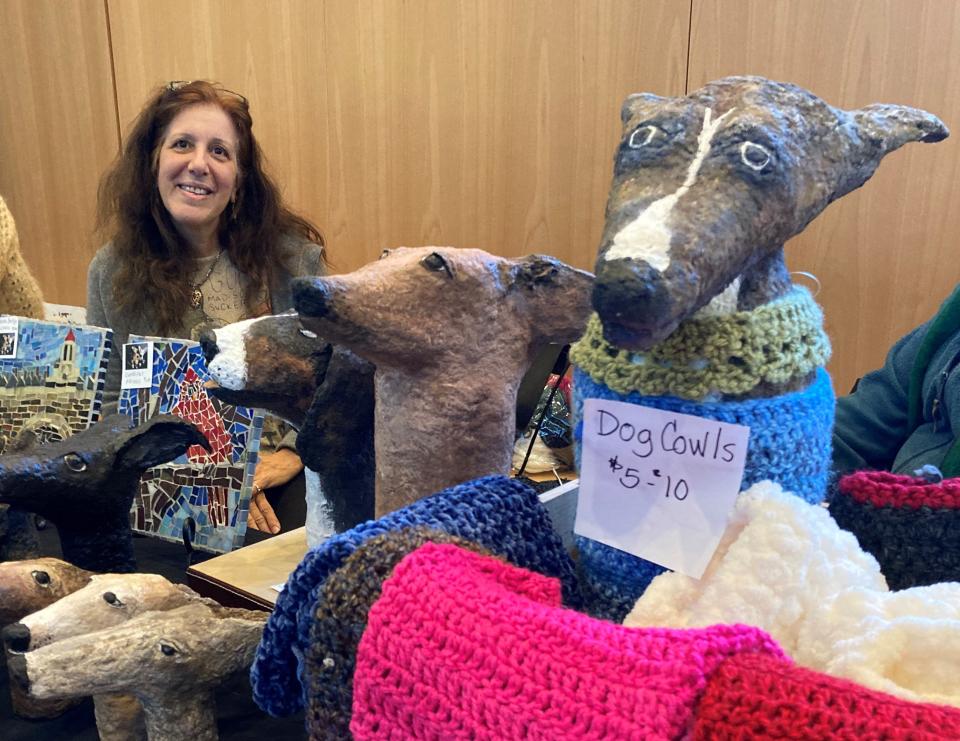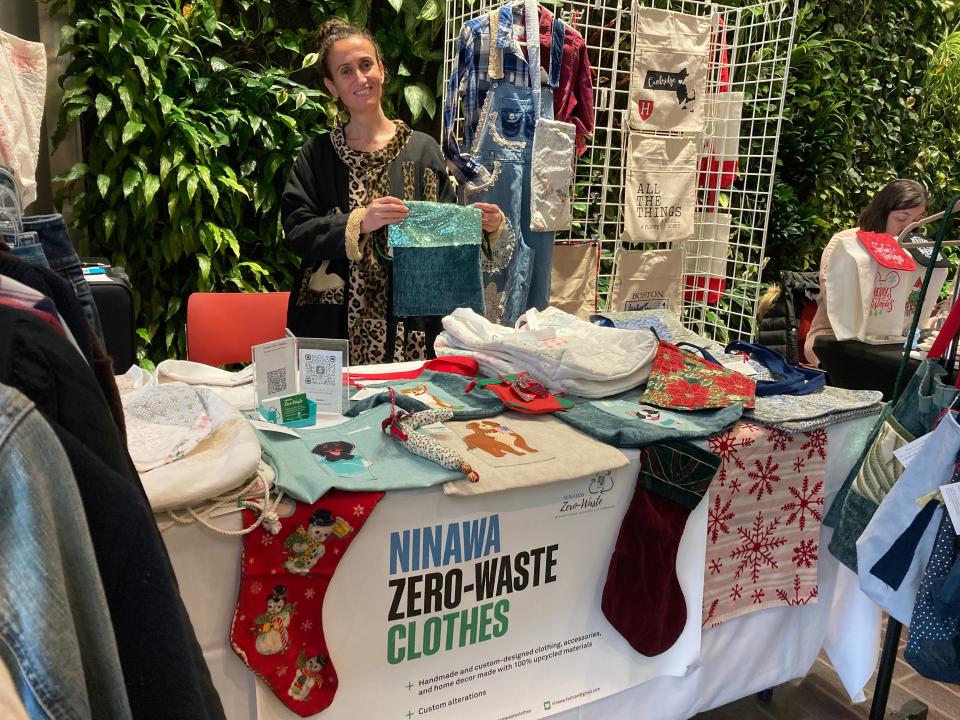It's a taxing season for holiday shoppers and vendors alike
The holiday season can be a taxing time of year for everyone: there’s the cleaning and cooking, shopping and decorating. And for vendors at the ubiquitous holiday markets that pop up everywhere, it can be extra tricky trying to figure out Massachusetts’ sales tax rules.

“It’s a lot of work and a pain in the butt,” said Daisy Hebb, a Cambridge artists who sells her informational calendars and cards in Massachusetts and Vermont.
True, certain apps have made calculating the 6.25% sales tax on certain items collected by Massachusetts easier, but in the end, it can take days and (almost) require a degree in mathematics to determine what is owed and to whom.
When Barbara Thomas, a chemical engineer with a degree from the Massachusetts Institute of Technology, started selling her hand-made soap about 20 years ago, she attended a workshop offered in Boston for new business owners.
“They said three things: Pay sales tax, incorporate and don’t use your social security number,” Thomas said. She took the advice and makes sure she pays the state that 6.25% on sales she makes in Massachusetts as well as paying the necessary tax on sales she makes online in other communities.

Some vendors at a recent Cambridge Arts Holiday Art Market at Harvard’s Smith Center Arcade, sponsored by the Cambridge Arts Council, looked blank when asked whether they collected sales tax on the items displayed for sale.
Laurie Gaines, a Cambridge artist, opts to charge a flat fee, calculates the tax she owes after a fair or show and sends that amount to the state. A former art teacher, she makes sculptures and hand-made neck warmers and cowls for dogs.
“I wish I sold enough to pay sales tax,” Gaines joked.
The Massachusetts Department of Revenue requires all crafters selling merchandise in the state to register as vendors with the department including out-of-staters who sell items for more than three days a year in Massachusetts. Online sales are also subject to sales tax and out-of-staters who sell merchandise valued at $100,000 or more must collect and remit sales tax to Massachusetts.
What exactly is taxed by the state?

Clothing is usually exempt except if it costs more than $175. Then sales tax is collected on the amount over the $175. Handkerchiefs, handbags and purses are taxed, as are jewelry and accessories, but aprons are not.
Good news for Marcia Cohen who sells hand-knit and crocheted scarves, hats, gloves and aprons.
“I don’t worry about the sales tax,” Cohen admitted.
However sewing supplies, patterns, hoops, needles, pins and even yarn used to make rugs, are all taxed. Fabric is not. Specialty shoes (like for bowling) are taxed, as is special clothing and equipment for jockeys, protective helmets and ski boots.
Certain services are taxed like vacation rentals of homes and prepared food is also taxed, but not if you buy it from a vending machine for less than $3.50 or if you buy baked goods sold in units of six or more. (So a half-dozen cookies will be tax free, but that one chocolate chip cookie you bought as a holiday indulgence should be taxed.)
Religious books (like the Bible and Quran) are exempt, yet other reading material is taxed, as are other paper goods including greeting cards, school supplies, stationery and paper products. (That cute wrapping paper with the snow bunnies, the calendar that informs people about Indigenous species, the pretty postcards from the artist who lived in Cuba for five years: All taxed.)

There is a website, Mass.gov, vendors can visit to determine whether they should be collecting tax on their wares. It also lists when sales tax must be paid or any late fees and penalties.
This article originally appeared on Telegram & Gazette: Sales tax ugh! No holiday from that pesky 6.25% this season

